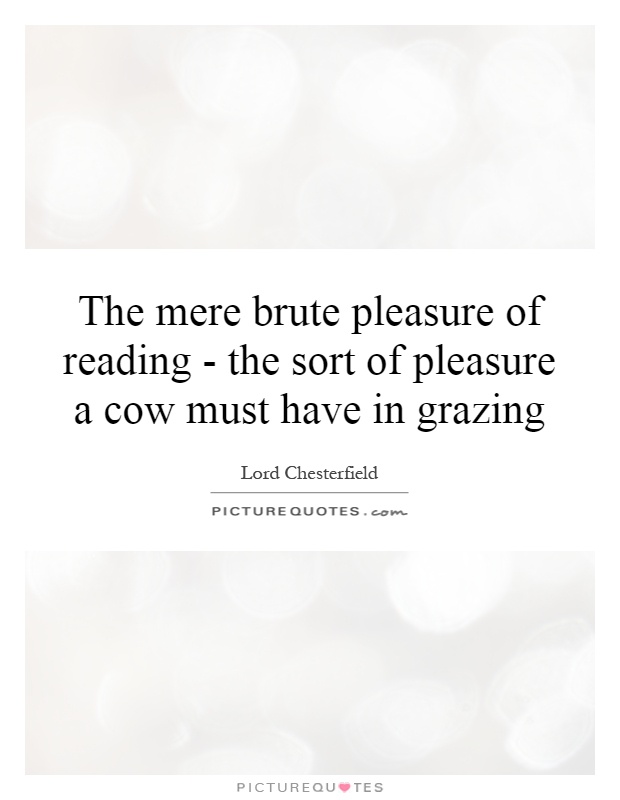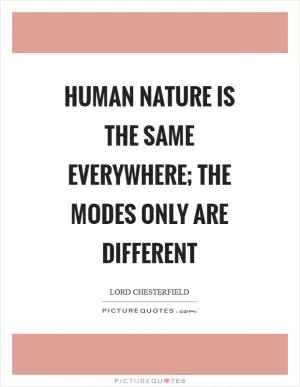The mere brute pleasure of reading - the sort of pleasure a cow must have in grazing

The mere brute pleasure of reading - the sort of pleasure a cow must have in grazing
Lord Chesterfield, a prominent figure in 18th-century British society, was known for his wit, charm, and love of literature. He once famously remarked on the pleasure of reading, comparing it to the simple joy a cow must feel while grazing. This comparison may seem odd at first, but upon closer examination, it reveals Chesterfield's deep appreciation for the pure, unadulterated pleasure that can be found in the act of reading.For Chesterfield, reading was not just a means of acquiring knowledge or improving oneself; it was a source of sheer delight, akin to the instinctual satisfaction that animals experience when engaging in their most basic behaviors. Just as a cow finds contentment in grazing on fresh grass, so too does a reader find solace and fulfillment in immersing themselves in a good book.
Chesterfield's comparison also speaks to the primal nature of reading. In a world filled with distractions and obligations, the act of reading can provide a sense of escape and tranquility, allowing the reader to lose themselves in a different world or time. Like a cow peacefully grazing in a field, the reader can find a sense of calm and contentment in the act of reading, free from the pressures and stresses of everyday life.
Furthermore, Chesterfield's comparison highlights the universal appeal of reading. Just as cows of all breeds and backgrounds find pleasure in grazing, so too can people of all ages, backgrounds, and interests find joy in reading. Whether it be a classic novel, a work of non-fiction, or a collection of poetry, the act of reading has the power to captivate and enchant readers from all walks of life.












 Friendship Quotes
Friendship Quotes Love Quotes
Love Quotes Life Quotes
Life Quotes Funny Quotes
Funny Quotes Motivational Quotes
Motivational Quotes Inspirational Quotes
Inspirational Quotes